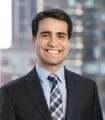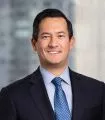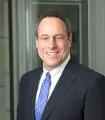In a pair of unanimous decisions issued on May 11, 2023, the Supreme Court vacated federal fraud and corruption convictions arising from then-New York Governor Andrew Cuomo's "Buffalo Billion" initiative. Ciminelli v. United States invalidated the Second Circuit's longstanding right-to-control fraud theory, and Percoco v. United States invalidated the test used by the District Court for determining whether a private person may be convicted of honest-services fraud. Taken together, these decisions are yet another instance of the Supreme Court's effort to limit federal fraud prosecutions in the context of public corruption at the state and local level.
The History of the Federal Mail and Wire Fraud Statutes
The federal mail and wire fraud statutes — 18 U.S.C. §§ 1341 and 1343, respectively — criminalize the use of certain interstate communications for "any scheme or artifice to defraud, or for obtaining money or property by means of false or fraudulent pretenses, representations, or promises." Since the Supreme Court's 1987 decision in McNally v. United States, the Court has consistently read the "money or property" clause as requiring that covered "scheme[s] or artifice[s] to defraud" involve traditional individual property interests. One reason for that narrow construction, as the Supreme Court explained recently in Kelly v. United States, is to ensure that federal fraud statutes do not give the federal government undue jurisdiction over "broad swaths of state and local policymaking."
The Court's approach in McNally and its progeny has been a response to decades of lower court precedent construing the mail and wire fraud statutes as reaching certain "intangible" rights — in particular, the right of the citizenry to enjoy a public official's 'honest services.'" Honest-services fraud rests on the premise that public officials owe a fiduciary duty of loyalty to the people, and therefore they commit fraud when they conceal that they are taking official action to benefit themselves (such as by accepting a bribe or kickback) rather than to benefit the public. (The theory also applies to private fiduciary actors, such as employees who owe a duty of loyalty to their employers.) Federal prosecutors have long used the mail and wire fraud statutes to bring public corruption cases against state and local officials, by charging that the defendant's "scheme to defraud" included a scheme to deprive citizens of their right to that official's honest services.
In 1987, McNally rejected that interpretation of the mail and wire fraud statutes, concluding that they only applied to schemes involving money or property and did not protect "the intangible right of the citizenry to good government." But then, in 1988, Congress enacted Section 1346 to immediately undo McNally. Section 1346 expands the mail and wire fraud statutes' definition of "scheme or artifice to defraud" to include "a scheme or artifice to deprive another of the intangible right of honest services" — giving prosecutors an explicitly textual jurisdictional hook for public corruption cases. In 2010, the Supreme Court's decision in Skilling v. United States upheld Section 1346 from attack on grounds of constitutional vagueness by limiting honest-services fraud only to "core" cases of bribery and kickback schemes, while rejecting honest services theories based solely on "undisclosed self-dealing."
Ciminelli: The End of the "Right to Control" Theory of Wire Fraud
Ciminelli concerned the Second Circuit's longstanding view that depriving a party of the "right to control" the use of its assets — such as by withholding "valuable economic information" — qualifies as a type of "property" fraud for purposes of the federal wire fraud statute. During oral argument before the Supreme Court, the Solicitor General's office itself abandoned this right-to-control theory, so it was not surprising that the Court ultimately chose to do the same with last week's decision.
In 2018, Louis Ciminelli was convicted of wire fraud for his role in the "Buffalo Billion" scandal, which concerned charges of bid-rigging in connection with Governor Cuomo's billion-dollar development initiative. Ciminelli allegedly conspired with other defendants to tailor a state development agency's requests for proposals to ensure that Ciminelli's construction firm fit the qualifications, winning Ciminelli and his firm a $750 million development contract. Relying on the right-to-control theory, prosecutors argued that Ciminelli had committed wire fraud by withholding material economic information from the agency, thereby depriving the agency of the right to control the use of its assets. Affirming Ciminelli's conviction, the Second Circuit reiterated its view under the right-to-control theory that the deprivation of complete and accurate information bearing on a person's economic decisions constitutes property fraud.
The Supreme Court disagreed, reversing and remanding Ciminelli's conviction. Justice Clarence Thomas, writing for a unanimous Court, explained that the right-to-control theory cannot form the basis for a fraud conviction because the "right to valuable economic information necessary to make discretionary economic decisions" is not a traditional property interest. Similar to the holding in McNally, the Court found that the federal mail and wire fraud statutes are limited to the protection of traditional individual property rights. When Congress enacted Section 1346, it only sought to revive "the intangible right to honest services" as recognized in prior decisions, not all other intangible rights. Since the Second Circuit's right-to-control theory was not grounded in either the statutory text or background understandings of traditional property, the Court stated that the theory "cannot be squared" with the text of the federal fraud statutes. Moreover, the Court emphasized that "[b]ecause the theory treats mere information as the protected interest, almost any deceptive act could be criminal," echoing Skilling's rejection of the "amorphous category of cases" involving deceptive acts of "undisclosed self-dealing." The Ciminelli decision thus criticized the right-to-control theory as contributing to the over-criminalization and over-federalization of local issues that are best left to state and local authorities.
Percoco: Limiting the Private Individuals Who Can Be Prosecuted for Honest-Services Fraud
In Percoco, a unanimous Court further restricted federal reach into state public corruption prosecutions by limiting the prosecutions of private individuals based on an honest-services fraud theory. To be clear, the Court was not addressing private sector honest-services fraud (i.e., involving private employees and employers), but rather public sector honest-services fraud where a private individual is charged in connection with violating his or her own supposed duty to honestly serve the public. Although the Court did not outright reject such a variation of the theory, it emphasized that such a theory must be sufficiently defined before a jury can find that a private individual owed a fiduciary duty to the public.
Joseph Percoco was the former Executive Deputy Secretary to Governor Cuomo from 2011 to 2016, but temporarily resigned from his position between April and December 2014 to manage Governor Cuomo's reelection campaign. During this hiatus, a developer from a real estate company, Steven Aiello, reached out to Percoco for help in receiving state funding from the Empire State Development (ESD), a NY state agency, for a project. Aiello wanted to find a way to avoid the ESD's requirement that his company enter into a "Labor Peace Agreement" with local unions as part of the project. Percoco agreed to help and successfully got ESD to waive the requirement right before Percoco returned to his job in the Governor's office. In exchange, Aiello's company paid Percoco a total of $70,000 before Percoco returned to his job.
Percoco was convicted of, among other things, conspiracy to commit honest services fraud for his alleged part in this scheme. Relying on the standard laid out by the 1982 Second Circuit decision in United States v. Margiotta, the trial court instructed the jury that it could find Percoco guilty of honest-services fraud, even though he was not a public official, if it found both that (1) "he dominated and controlled any governmental business" and (2) "people working in the government actually relied on him because of a special relationship he had with the government." The Second Circuit affirmed the conviction.
The Supreme Court unanimously reversed and remanded. In an opinion by Justice Samuel Alito, the Court found the trial court's instructions were "too vague," providing an "ill-defined threshold" for when a private citizen holds a duty of honest services. The requisite relationship must be clear and sufficiently defined to prevent the prosecution of individuals for legitimate private activity, such as the work of "well-connected and effective lobbyists." Relying on its reversal of a Virginia governor's conviction in McDonnell v. United States, the Court found that the trial court's instructions invited "arbitrary and discriminatory enforcement" because it was not clear when one's work with the government would become illegitimate. Importantly, however, the Court suggested that a private individual might owe the public "the necessary fiduciary duty" that might sustain a prosecution if he or she agrees to act as an actual agent for the government.
The government offered a revised theory and argued that the trial court's instructions were harmless error: that a private individual owes a duty of honest services to the public when (1) "the person has been selected to work for the government in the future" (borrowing a concept from the federal-official bribery statute) and (2) "the person exercises the functions of a government position with the acquiescence of relevant government personnel." However, the Court found that the first theory differed substantially from the jury instructions without concluding whether or not it was a proper limitation. The Court also rejected the second theory because it erroneously restated Margiotta's vague holding. In sum, as Justice Gorsuch observed when concurring in the judgment, the majority provided no view on the government's first alternative test but rejected the second.
Justice Gorsuch's concurrence was joined by Justice Thomas and echoed the late Justice Scalia's concurrence in Skilling (which was also joined by Justice Thomas): 18 U.S.C. § 1346 is unconstitutionally vague and should be rewritten by Congress with more clarity.
The Percoco opinion might leave the reader a little unsatisfied. In effect, the Court held that the test used by the District Court for deciding when a private actor's fiduciary obligation to the public was not sufficient, but provided little guidance about what the proper test should be. In other words, as Justice Gorsuch notes in his concurrence, "we may now know a little bit more about when a duty of honest services does not arise, but we still have no idea when it does." As a result, prosecutors, defense counsel, and lower courts "must continue guessing" after Percoco.
Going Forward
These two unanimous decisions confirm the Court's continued skepticism about the use of federal fraud laws to prosecute state and local corruption schemes. It's not clear, however, how much impact these decisions will really have. Percoco presented a fairly narrow question of when a private individual is really a public official, such that he can be prosecuted for violating his duty to provide honest services to the public. Although the Court worried that lobbyists could be prosecuted under such an expansive theory, federal prosecutions against lobbyists are exceedingly rare, and it's not clear that situations like Percoco come up with any regularity. Ciminelli is the more expansive opinion, but federal prosecutors likely anticipated that the right-to-control theory was on its way out, and will surely be able to charge most cases of actual fraud by proving the deprivation of actual money or property. Even in Ciminelli itself, the government argued to the Supreme Court that the contract at issue was the money or property that Ciminelli sought, which is plainly a traditional property interest. While the Court refused to affirm based on a theory it said had not been properly put to the jury, Justice Alito's concurrence made clear his view that the government could re-prosecute Ciminelli on that theory upon remand to the District Court.
In any event, while neither case may have much impact going forward, they both serve as yet another reminder that the Supreme Court will continue to look unfavorably on expansive theories of public corruption that lack solid support in the congressional text.
The content of this article is intended to provide a general guide to the subject matter. Specialist advice should be sought about your specific circumstances.






